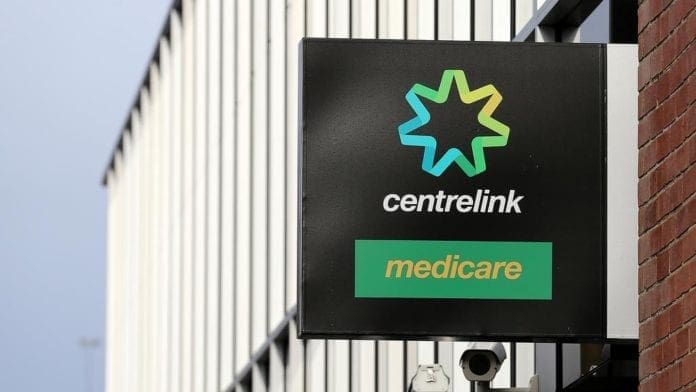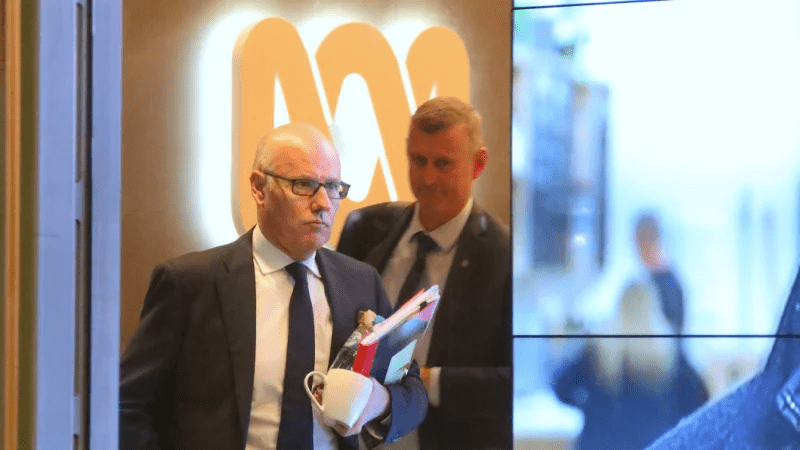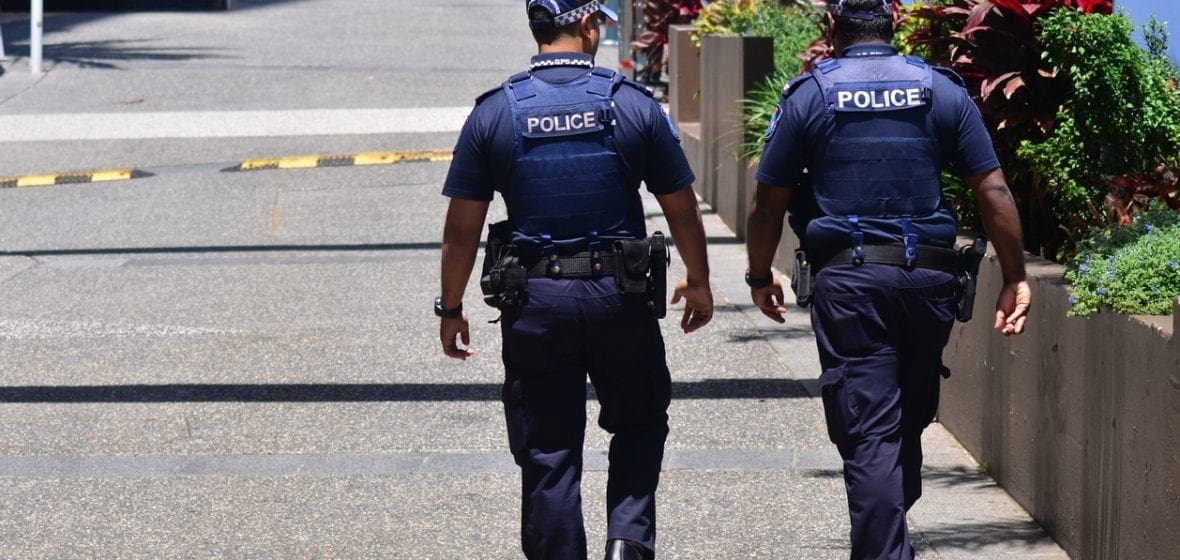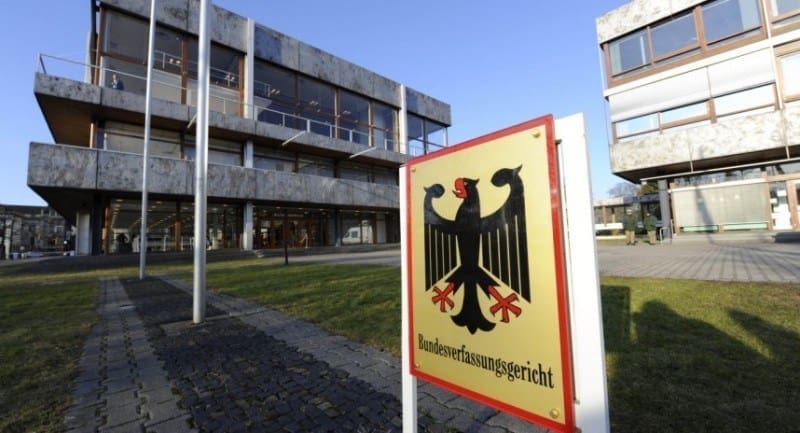It is our very great pleasure to announce that Freedman & Gopalan Solicitors has once again been short-listed for the Women in Law Awards 2019!
We are a finalist category of:
The Women in Law Awards is dedicated to recognising and celebrating the outstanding women shaping and influencing the legal industry. The finalist list includes over 200 high-achieving legal professionals across Australia in 31 different categories. The winners will be announced on Friday, 22 November 2019.
The importance of women in law is a cause very close to our heart at Freedman & Gopalan Solicitors. The legal profession is improved and driven forward by the presence and work of women. Women bring the qualities of patience, empathy and positivity to their work and to interactions with clients and can often face very different hurdles to men in the workforce. This is why the Women in Law Awards are an important opportunity to recognise the contribution of women to the legal profession. We are humbled to be recognised on the national stage and proud to be part of the Women in Law Awards.
We take this opportunity to THANK our loyal clientele and most dedicated Staff and team members, without whom we are unable to continue to provide our most efficient and efficient legal services. Our special THANKS and appreciation goes to OUR AMAZING TEAM comprising:
Ms Mittu Gopalan
Mr Nikita Sofronov
Ms Maneesha Zacaharias
Ms Christie Murphy
Ms Jasmin Talj
Ms Nina Ho
Ms Penelope Smith
Ms Angelique Gebrayel
Mr Nitish Joshy
Ms Mrithika Shankarla and
Mr Timothy Mathew
We are mighty thrilled to start the week with this amazing news!!!
One of our clients had recently made contact with us to notify us of the following: -
- That she had a contract with MyRepublic, a multinational Internet company, in 2018.
- She requested the contract to be terminated in December 2018.
- She then received an invoice in June 2019, requesting her to attend to the payment for apparent services provided by MyRepublic from January through to June 2019. Of course, the client was most upset and made contact with them, requesting them to have the invoice written off.
- However, no appropriate or relevant person from MyRepublic was helpful in any way, and she was unable to speak to an appropriate person who could in fact address her concern.
- MyRepublic then proceeded to direct debit the payment without addressing our client’s issues raised and without her authority as they had kept her credit card details on their system’s records when she was still contracted with their company.
- Accordingly, she was also worried whether any future payments would in fact be direct debited further. To prevent future payments from being debited, our client then had to proceed to contact her banking institution in order to terminate her credit card.
- However, despite further numerous attempts to make contact with MyRepublic and even having been falsely assured that a refund would in fact be processed for the payment, no money was returned to our client.
Subsequent to obtaining legal representation, MyRepublic was forced to respond. When threatened, intimidated and notified the matter would be escalated to a Telecommunications Ombudsman, a response was finally obtained. They had no valid response to provide as to why an invoice was issued 6 months after the contract was repudiated by our client.
This is a clear situation where false representations were made to a customer on various occasions and where a transaction was fraudulently made to her credit card details that was still on system’s records.
After numerous correspondences and strenuous threats being raised against MyRepublic, they finally conceded to the fact that the money was wrongly direct debited and agreed to refund it. Contrarily, their policy was such that it would only be direct debited to the nominated bank account when advised.
Further, when our firm advised MyRepublic that the card had been cancelled and that our client did not hold a valid account with that specific entity, they said they had no choice but to make a refund to that particular entity, and our client had to proceed to make contact with them to have that transaction followed through! Obviously, concerns and headaches for our client continued.
After much hassle and further inordinate steps, our client was only able to recover the payment from MyRepublic after 6 months and legal costs being incurred!
This is most unprofessional, and accordingly, kindly ensure that any company that has your direct debit contact details are notified in writing of the following: -
- When your contract needs to be terminated, kindly put them on Notice via writing.
- Kindly ensure that they are also notified in writing that direct debits are to be cancelled.
- If a payment has been illegally processed, ensure that you follow it through rather than letting these multinational corporations embezzle moneys from you without appropriate authority.
If you believe you have exhausted your communication efforts with any company, contact Freedman & Gopalan Solicitors on 02 8917 8700 in order to obtain advice and retain our services to recover your debt!
Centrelink’s controversial 'robodebt' scheme has come under fire with a class action to be launched against the government over Robodebt due to the claim that it is unlawful.
Former Labor leader, Bill Shorten, backed the action. The senior partner of Gordon Legal, bringing the claim, stated that collecting money based exclusively on an algorithm was unlawful due to its penal consequences. They claimed that the mechanism was too simplistic and did not apply to the reality of people’s varying situations appropriately and rather, should be considered on a case-by-case basis. The partner further alleged that investigations have established an approximate sum of two to three hundred million dollars being wrongfully claimed from people and some of these have also had to pay 10 per cent penalties on these amounts, once the debt is sold to a private collector.
Other critics have raised issue with the legality of this scheme as it reverses the onus of proof such that the welfare recipients need to prove that they do not owe money rather than the Government proving that they owe money.
However, this has been disputed by the Government Services Minister, Stuart Robert, who views the suit as a political move and insists that the system is working. Despite 20 per cent of letters sent out demanding debts that were not owed, he claimed that the system was still working as the letters are merely a result of a discrepancy between their reported income at Centrelink and what they report for their tax return to the Australian Tax Office (ATO) and that the letters merely required the discrepancy to be explained.
Apart from this suggested class action, Victoria Legal Aid also brought an action on behalf of government employee Deanna Amato. Centrelink had claimed that she owed a debt of $2,754.00 that was paid to her while studying a diploma and also took all of her tax return without knowing or proving that a debt existed due to the reversal of the onus of proof. There is also another case for Madeline Masterson to decide if the Federal Court should test the legality of Robodebt due to Centrelink’s decision to clear her debt after Victoria Legal Aid filed her case earlier this year.
We hope that these hearings and the formation of the class action will alter the process to make Robodebt more legally compliant and to clarify the debt-collection process for the general public.
If you would like to enquire about any of the issues raised above, please do not hesitate to contact Freedman and Gopalan by calling 8917 8700 or by filling out the enquiry box.
Australian treatment of refugees has once again come into the spotlight, this time with the Sri Lankan Tamil family of four from Biloela, Queensland as the face of it.
They have escaped deportation temporarily through a last-minute injunction where their matter is once again due before the court for an interlocutory hearing on 18 September 2019.
Priya and Nadesalingam came to Australia as Asylum Seekers, in 2012 and 2013 respectively, by boat, following the civil war in Sri Lanka. Their temporary bridging visa ran out after 4 years in March 2018 which resulted in the Australian Border Force (ABF) officers taking them to the detention centre in Melbourne during a raid at dawn.
The civil war in Sri Lanka between the government forces and the Liberation Tigers of Tamil Eelam (LTTE), also known as the Tamil Tigers, occurred across 26 years before ending in 2009 with the separatist movement of the Tamil Tigers being obliterated by the government forces. While the civil war has officially ended, the treatment of Tamils has not necessarily improved.
Hundreds of Tamil Tigers surrendered to the government at the end of the civil on the premise of humanitarian treatment but were made to board buses and were never seen again. Not to mention, The International Truth and Justice Project in Sri Lanka has received claims of continuing torture of Tamils with 76 Tamils alleging torture and sexual violation during illegal detention between 2015 and 2017. Currently, many Tamils like Tamil activist Ramanathan Shrignaneswaran allege that Tamils in Sri Lanka continue to live in fear in the militarised north where they risk being arrested by the government forces under the farce of terrorism. Moreover, recent political developments in Sri Lanka involving Gotabhaya Rajapaksa, who was fundamental in defeating the Tamil Tigers, being named the opposition’s candidate for the presidential elections sends a frightening signal to Tamils in Sri Lanka.
In the present case, the family is fighting their case on the basis that they will face persecution on their return to Sri Lanka due to their involvement with the LTTE where Nadesalingam claimed that he was forced to join the Tamil Tigers and was hence harassed by the Sri Lankan Forces. Moreover, by leaving the country on boats they had already committed an offence in the eyes of the Sri Lankan Authorities.
The family, who could have been deported on Friday afternoon, will remain in detention until 18 September 2019. The family could remain in detention for months if the matter goes to a full and final hearing after 18 September 2019, for which a date has not yet been set.
However, Home Affairs Minister Peter Dutton insists that the Tamil family were not refugees but were rather economic migrants who are not entitled to protection from Australia. Evidence that Nadesalingam travelled between the Middle East and Sri Lanka between 2004 and 2010 for work has been used to support this claim and further, that he was not involved with the LTTE and would not be of concern to the Sri Lankan Authorities. However, Damien Kingsbury, Professor of International Politics in Deakin University stated that this was not an unusual occurrence with Sri Lankans during the civil war.
Moreover, with the 6th recent attempt of a people smuggling boat from Sri Lanka being intercepted by the Australian Border Force Officials, Dutton stated that the threat of Sri Lanka was a concern. Hence, Prime Minister Scott Morrison said that he would not be granting an exception by using his discretion as it would send the wrong signal to those in other countries seeking to enter Australia through boats and it would undermine the strength of Australian borders.
As a result, there has been a large amount of support from the Australian public as seen through the activism in support of the family. While this could have the effect of putting greater pressure on the government to grant them asylum, it could also be counterintuitive. Immigration lawyer, Simon Jeans, who has worked with the last 10 immigration ministers states that the widespread media coverage has the effect of cornering the minister such that if he does grant them a visa, it would encourage more people to make such campaigns in the future.
Nevertheless, the coverage does bring greater light into the plight of refugees in Australia with concerning images of the family being brought to Christmas Island and a video of the Australian born children of the family screaming for their mother as she is pulled away by the ABF being screened.
If you or someone you love are at risk of deportation, seek immediate legal advice. Please do not hesitate to contact Freedman and Gopalan by calling 8917 8700 or by filling out the enquiry box.
The ABC's executive editor John Lyons being followed by an AFP officer during the June raids
(Photo: David Gray)
Freedom of press in Australia has been put in a precarious position after ABC lost the preliminary round against the Australian Federal Police (AFP) on August 19 over the recent raid of their Sydney headquarters which followed AFP’s raid of News Corp’s Surry Hills branch.
2 months before the infamous raid of ABC by the AFP, the AFP wrote a letter to the ABC’s Sydney headquarters requesting for the fingerprints of two journalists. These journalists had written a 2017 report known as The Afghan Files which reported on the activities of the Australian special forces’ soldiers in Afghanistan between 2009 and 2013. The letter stated that the journalists were suspects in relation to offences like but not limited to, s73A (2) of the Defence Act 1903 which concerns information obtained unlawfully.
In the recent hearing, ABC sought to amend its case by seeking to make further allegations against the AFP and the registrar who issued the search warrant. They alleged that the decision to issue the warrant was impacted by “jurisdictional error” as the parties did not consider issues like the importance of the invasion of privacy that the search warrant will cause and the significance of protecting the journalists’ sources and the public interest of protecting investigative journalism.
A Federal Court judge found these claims to be invalid by describing them as “speculative” and stating that the foundation of their claim, that no public policy concerns were considered, was solely based on the warrant itself and nothing else.
While these claims were rejected, the ABC’s case includes claims that the decision to obtain and issue a search warrant was legally unreasonable due to the public policy factors of privacy, necessity to safeguard sources and investigative journalism’s public interest aspect. These allegations remain unchanged by the judge’s decision.
The raids give rise to the issue of whistle-blowers and how likely they are to come to journalists with their information. With the crucial role they play in exposing malpractice, disincentivising them through such raids is against public interest. Hence the concerns surrounding the implied freedom of press in Australia stem from the likelihood of fewer sources coming to journalists with information and investigative journalists being less likely to report on concerning matters for fear of being criminalised.
Only time will tell the position of freedom of press and its boundaries in Australia with the continuation of the ABC hearings being the face of it.
Photograph: James Ross, AAP
The infamous saga of Cardinal George Pell continues with another appeal but this time, his final one to the High Court.
The Catholic cleric was sentenced to 6 years of imprisonment and 3 years and 8 months of non-parole period for sexually abusing two choirboys in the 1990s. While his appeal against his child sex abuse convictions was dismissed, Justice Weinberg’s dissenting judgment has been the push for this final appeal based on the grounds of his dissenting opinion.
Pell has to lodge an application for special leave in order to appeal to the High Court within 21 days of the Court of Appeal’s judgment and he is likely to have his next hearing by this year. Should his leave be approved, his appeal is likely to be heard within 4 to 6 months from then.
Currently, Pell is held in a high security cell in the Melbourne Assessment Prison where he is locked up for 23 hours per day. He is to be moved to the Hopkins Centre in Ararat to be imprisoned alongside other ex-priests convicted of varying sex crimes against children.
While Pell’s lawyers argue on the grounds of lack of evidence it is not unusual for cases of sex abuse to have no witnesses to the crime, besides the victims, and for juries to hand their decision through analysing the quality of the statements provided by the victim and how it holds up in cross-examination. Thus, it may be unlikely that the High Court will reverse the judgment. However, in light of the dissenting judgment, more Pell supporters like the Melbourne Archbishop feel further strengthened in their position and hope for Pell’s acquittal in the High Court.
With prevalent institutional sex abuse as indicated by a long line of notorious sex abusers like Father Kevin O’Donnel, anti-abuse advocates like Chrissie Foster believe that Cardinal Pell’s dismissed appeal sends a signal that other victims of institutional abuse will be believed.
More to come if the High Court hears the appeal next year, in 2020.
If you or anyone you know is affected by sexual assault, please call 1800 RESPECT (1800 737 732) or contact Lifeline on 11 13 14. If you would like to discuss your legal options, contact our offices on 8917 8700 or via the enquiry form on this website.
Arguably Australia’s biggest cricket event of the year, the Ashes test series has raised concerns surrounding player safety. Specifically, whether a player should be immediately withdrawn from a match following a blow to the head.
Cricket’s number 2 batter in the world, Steve Smith, who has been Australia’s best batter in the Test series so far, was struck on the neck with a 148km bouncer by England’s fast bowler, Jofra Archer. Smith was then taken off from the ground to undergo a series of ‘concussion tests’ to determine whether he in fact did have a concussion. Smith passed these tests and after 40 minutes following the blow to his head, returned to bat.
The following day Smith woke with a headache and felt ‘groggy’, symptoms of a concussion, and was withdrawn from the Test by the Australian medical team.
New international procedures were implemented following the death of Philip Hughes, who passed away 2 days after being struck in the head which resulted in a traumatic basal subarachnoid haemorrhage.
Symptoms of concussions on most occasions do not occur until hours after the injury, possibly even a few days.
Without the resources of specialised medical staff at hand to determine whether a player should be withdrawn from the game and/or match, what is your opinion if a player from your local cricket team received a blow to the head from a bouncer? Should they be immediately withdrawn?
There are arguments that no risks should be taken with a concussion. However, there is also the argument due to the nature of the sport whereby bouncers are a bowler’s weapon in their arsenal in the strategic game, a player should not be withdrawn on every occasion that they are hit in the head.
If you or anyone that you know has been subject to any injuries as a result of negligence from a sporting body, contact our offices on 8917 8700 to discuss your options.
Strip searches are the most invasive action police can take without a court warrant.
This week, academics the University of New South Wales have released a report titled ‘Rethinking Strip Searches by NSW Police’. They’ve found that in the last ten years, the number of strip searches has risen dramatically: in 2006 strip searches were used 277 times, but in 2018-19 financial year they were used 5,483 times. In 91% of recorded reasons, police stated they suspected the person possessed prohibited drugs. However, the report argues that the increased strip searches are doing little to tackle serious drug crime.
Police have a broad discretion to conduct searches. Police may conduct a strip search if they have reasonable suspicion to believe that the circumstances are ‘serious and urgent’ enough that a strip search is necessary. So, when empowering police with this power, Parliament intended strip searches to be a last resort. An indication from a drug sniffer dog, when not combined with other factors, such as observation and asking questions, would be insufficient to meet the requirements of a strip search.
What exactly is a strip search?
A general search is when police pat down outer layers of clothing. The police may ask the person to take off their jacket, socks, hat and/or gloves.
Taking off anything more than that is a strip search. If an offer looks down the back of someone’s pants, and down their top, that is a strip search.
Conditions of a strip search:
- During a strip search police are not allowed to search cavities or require someone to ‘squat and cough'. A ‘cavity search’ can only be ordered by a court.
- Police cannot question, intimidate or harass you during that process.
- The strip search must be conducted within a ‘private area’.
- It must be conducted by an officer of the same sex as the person being searched.
- Police must provide information to the person being strip searched, including their name and the police station where they work.
So a ‘squat and cough’ search at a music festival, with many young people in the same room, who are questioned during the process, is unlawful.
Who is being searched?
45% of all recorded strip searches in 2017-18 financial year were of young people, aged under 25 years old. Children under 10 cannot be strip searched. For children aged 10-17, police must obtain guardian consent unless they think the evidence will be destroyed and the search is ‘urgent’. Case studies have indicated this exception for 10-17 years olds is being abused, and children are being stopped by police and being made to stand in their underwear in public places.
10% of strip searches in the field and 22% of strip searches in custody were Aboriginal and Torres Strait Islander people. This is despite Aboriginal and Torres Strait Islander people being less than 4% of the total NSW population. As with other police powers, there is indication the discretion can be used in a discriminatory way.
What does the report recommend?
One of the major issues identified in the report is a lack of accountability by the police. Data is generally not publicly available. Public accountability and transparency about internal rules and policies of the police would decrease the amount of unlawful searches.
The report also recommends changing the law in relation to strip searches to be clearer about when and how police can conduct strip searches. The law should be clear that police cannot ever search genitals or breasts, and strip searches of children in the field (outside a police station) should be prohibited unless there is a court order.
Read the full report here.
If you think you have been strip searched unlawfully, seek immediate legal advice. Please do not hesitate to contact Freedman and Gopalan by calling 8917 8700 or by filling out the enquiry box.
At Freedman & Gopalan, we facilitate legal dispute resolution, analyse the law, attend Court, liaise with clients and give legal advice. The law is very important to us. So, it is important to reflect on what exactly the law is.
Is law simply the Acts that are passed in Parliament, and the judgments handed down in Court? Or is there something more that defines the law – does it have to uphold justice, equality and other moral values?
This is an issue that one of our clerks has recently been considering in her studies in Berlin. After World War Two, Germany was faced with a very particular and urgent issue. Many of the war crimes and human rights violations that Hitler’s totalitarian regime had carried out, including the mass murder of the Jews of Europe, had been done lawfully. While in power, many oppressive laws had been enacted by the German legislature and enforced by the German courts. So, the question after the war was, could we prosecute people for the terrible things that were done during the war, even if those things were legal at the time?
In the end, German legal scholars and courts decided that yes, they would define law as being the Acts in Parliament and judgments in Court, and everything else that makes up the law, but if a law was 'intolerably unjust', then it would not be lawful. So, people could be prosecuted for the wrongful things they did during the Nazi regime, even if they were technically legal at the time, because those laws were not valid. This was a big change from how we thought about law previously, and is often labelled a “natural law” theory, meaning that the law’s authority is derived, at least partly, from the moral authority of the substance of the law.
Since World War Two, many countries have written human and civil rights into their constitutions, and now laws that contravene those rights will be unconstitutional. So, this "natural law" definition has lost popularity over time because there is less of a need to refer to a higher sense of unwritten justice. However, it is possible that we may need these ideas and philosophies again one day, and it is interesting to consider how Germany dealt with this issue after the Nazi regime collapsed.










